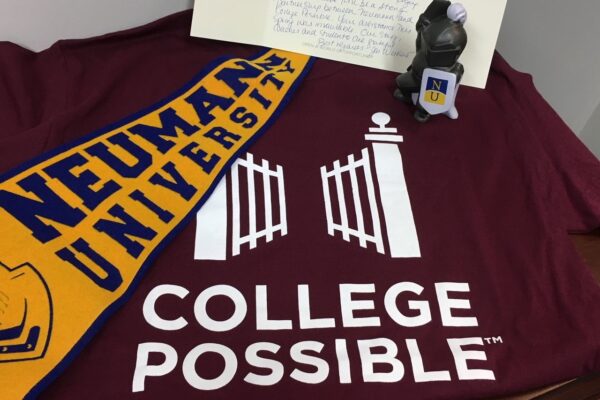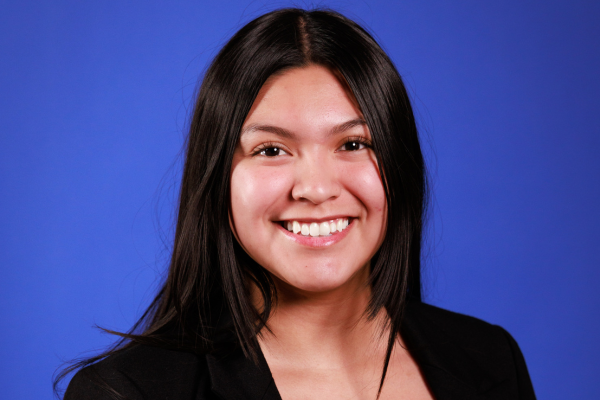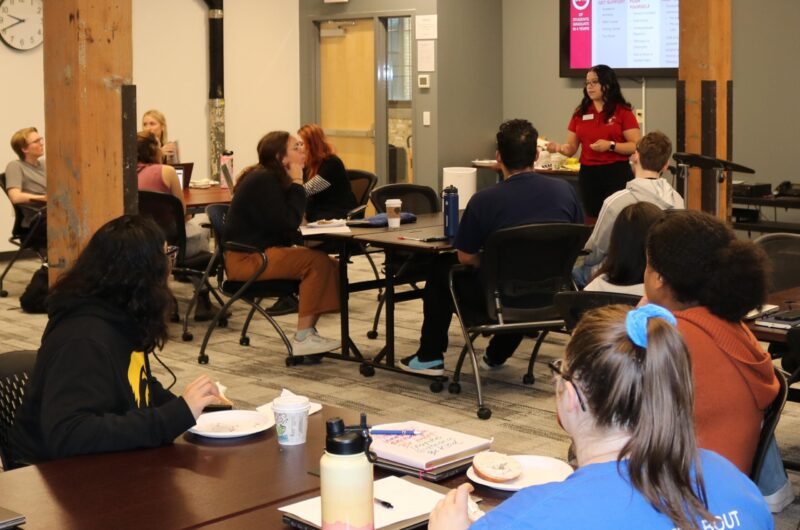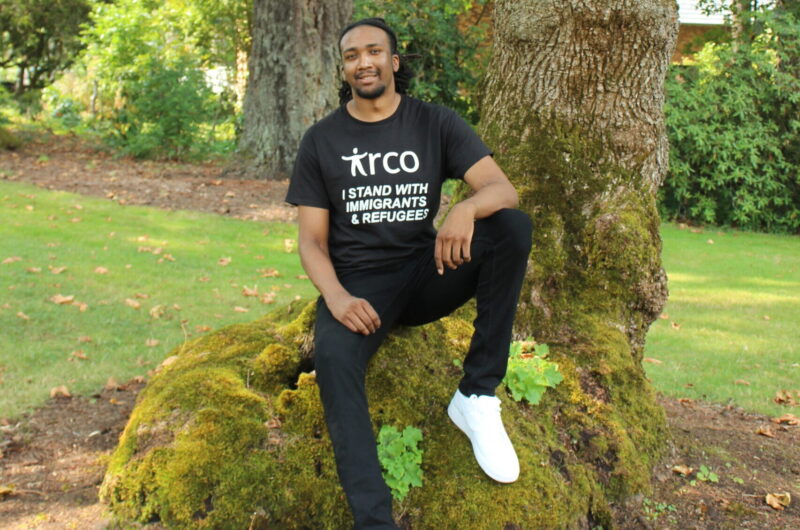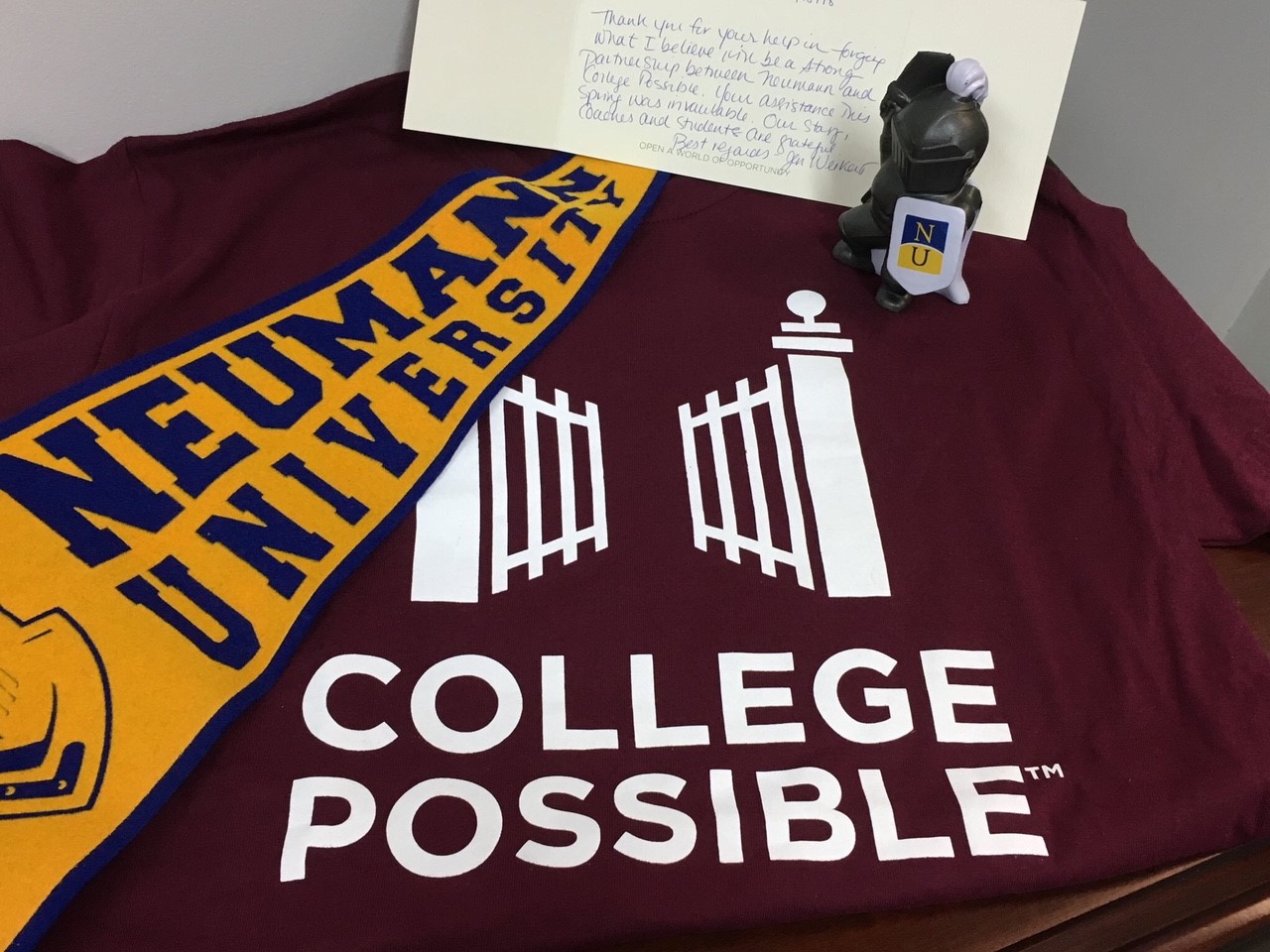 Located in the heart of Delaware County, Neumann University is College Possible Philadelphia’s newest Bridge partner. Founded in 1965, the university has more than 2,700 undergraduate and graduate students. In July 2017, Neumann welcomed its sixth president, Dr. Chris Everett Domes, who is focused on supporting low-income, first-generation students on campus to make sure they have the tools and resources in place to persist to a college degree.
Located in the heart of Delaware County, Neumann University is College Possible Philadelphia’s newest Bridge partner. Founded in 1965, the university has more than 2,700 undergraduate and graduate students. In July 2017, Neumann welcomed its sixth president, Dr. Chris Everett Domes, who is focused on supporting low-income, first-generation students on campus to make sure they have the tools and resources in place to persist to a college degree.
What is Neumann’s headline for this academic year?
This is a record freshman class, in terms of the last several years. There is about a 19 percent increase in freshman numbers compared to last year, so it’s a very big freshman class. Quality is also up. There is about a 40-point increase in SAT scores, and overall there is a strong diversity in our student population. In addition, total enrollment is very strong this year.
What do you see is the greatest challenge facing Neumann University in the next 5-10 years?
We live in an environment right now in private higher education that has a lot of pressure. Numbers of students who want to and can enroll in college or universities are flattening, and a few years in the future, those numbers will actually decrease. Some students are more socioeconomically challenged, and in some cases, more academically challenged. We want to make sure we can adapt our university to the growing needs out there.
Technology and online learning are areas that we have to continue to make sure we are advancing in as a university. We have to meet the changing needs of students who want to use a variety of learning modalities, not just learning in traditional ways. The reality is, people are looking at institutions that have blended programs, either programs that are fully online or programs that offer both online instruction as well as in-person opportunities.
Also, I think that for small private colleges, combating the “is college worth it?” question is really important. We have to ramp up our ability as a university to make sure that we are making the case to families and students that a Neumann education is worth it. Families are doubting that these days in ways they never have before, and so we have to continue to prove to families that we provide a critical pathway to success.
In your experience, what is the number one challenge students from low-income backgrounds face in college?
The number one challenge is that low-income students don’t have a support system that other students do – those who are coming from more means or from families where the parents have gone to college and have higher education experience. Support systems are really critical, not just at the beginning of their academic experience but throughout their entire academic experience and even through landing that first job. We have to continue to support them through every step of the process.
Can you talk about a really interesting or innovative initiative you’ve taken on to improve your retention and graduation rates?
For students who needed additional support in math, reading or writing, we provided a free course in the summer for them to come and participate in at the university. We know that students can get derailed if they aren’t getting a good first start at college life, particularly in the academic world. We’ll see what the results are moving forward later this year and into [their] sophomore year.
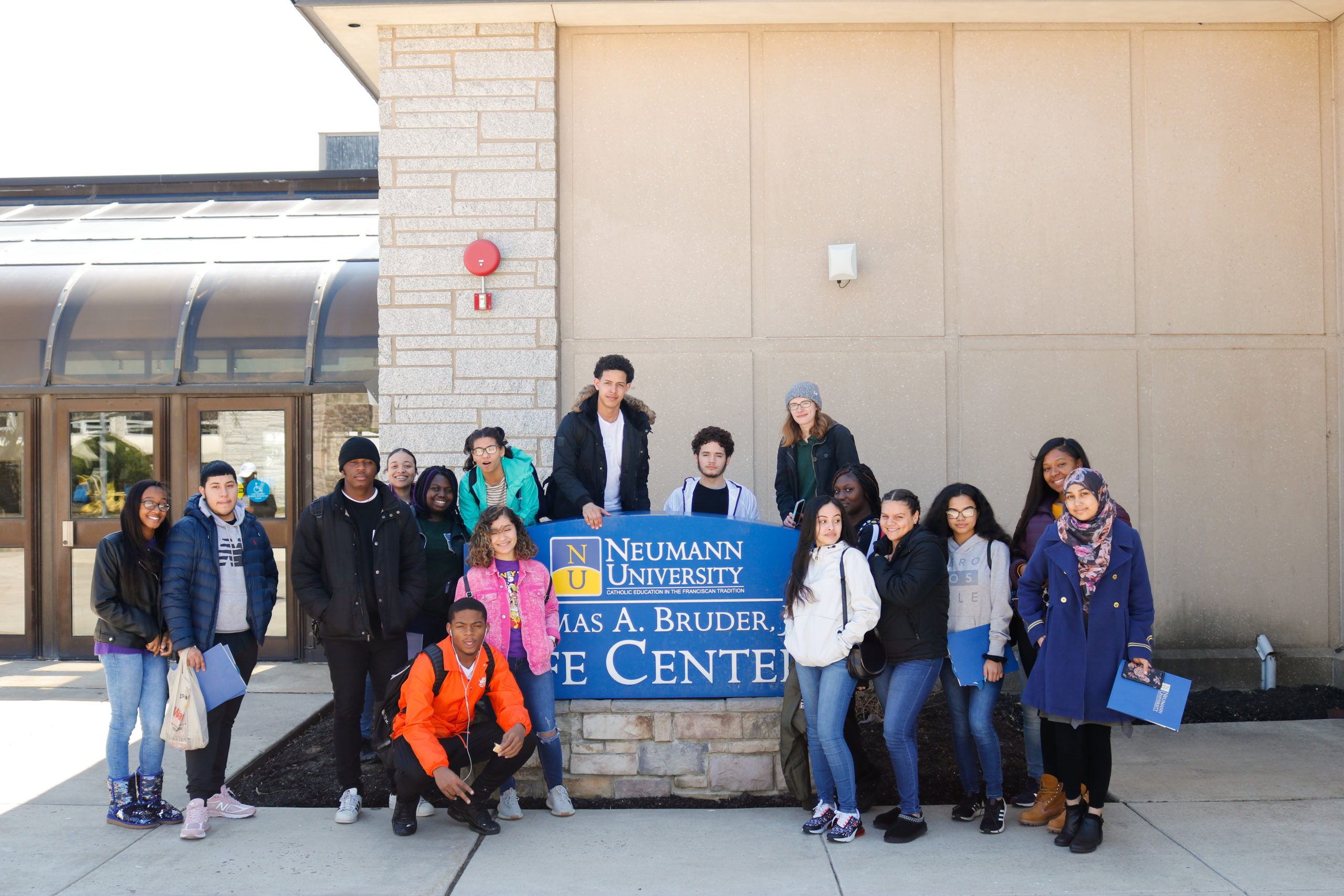 While you were president at Silver Lake College, you partnered with College Possible Milwaukee. Why was it important for you to do the same at Neumann with College Possible Philadelphia, and how are you working with College Possible to serve students?
While you were president at Silver Lake College, you partnered with College Possible Milwaukee. Why was it important for you to do the same at Neumann with College Possible Philadelphia, and how are you working with College Possible to serve students?
My experience with College Possible is that it is a wonderful connector. We know at Neumann University, and it was certainly true at Silver Lake College, we have a very positive environment where we try to support every student who comes through the doors of our institution, but lots of times students come without a lot of support. Having a partner that offers some additional support — mentoring and coaching students, particularly students who are in a more socially and economically challenging position or students who academically have the ability but just need the additional support, is great. It just makes so much sense for us to partner with another organization supporting that student’s success.
How do Neumann’s strategic goals align with your partnership with College Possible Philadelphia?
As an institution, Neumann has admitted and served students who are in College Possible’s wheelhouse. We have the experience of helping young people who really need support. For example, 60 percent of our students are first-generation and more than 45 percent of our first-year students are students of color. Neumann has a lot of diverse and first-generation students, so from a strategic standpoint, we already serve the same students as College Possible; it is a natural partnership and gives us the opportunity to make sure that those students are achieving success at Neumann.
What are some ways in which Neumann can work with College Possible to identify potential students for admission?
At Neumann, we want to make sure that our admissions team is going into College Possible’s [partner] high schools and connecting with the student’s coaches. We would love to offer programming for parents or guardians of students on financial aid. We also could have faculty host a mock classroom with students on subject areas that students are interested in hearing about when they get to college.
How do you think Neumann’s partnership with College Possible Philadelphia will lead to changes or introduce new initiatives to campus?
One of the things we’re interested in is your mentorship program. As an organization, the way College Possible teams up with students and stays on top of their work in high school and throughout college will continue to teach us important skills in our advising operation at Neumann. I also think there is opportunity for scholarships and even financial support for students coming from College Possible. Moving forward, it might be an opportunity to inform our faculty and staff to understand this partnership more fully.
Our special thanks to Dr. Chris Everett Domes, president of Neumann University, for taking part in this interview.
By Ian Reitz
